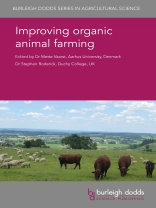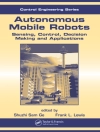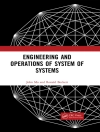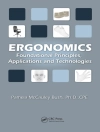- Reviews key challenges and solutions in improving the health and welfare of organic farm animals
- Addresses how organic livestock farming can build on smallholder systems such as pastoralism and agroforestry
- Includes case studies on improving organic farming of dairy and beef cattle, sheep and goats, pig and poultry
Cuprins
1.Setting the scene: the continued drive to improve organic animal farming: Mette Vaarst, Aarhus University, Denmark; and Stephen Roderick, Duchy College, UK;
Part 1 Concepts in organic animal farming
2.The principles of organic livestock farming: Susanne Padel, The Organic Research Centre, UK;
3.The effects of organic management on greenhouse gas emissions and energy efficiency in livestock production: L. G. Smith, The Organic Research Centre and Cranfield University, UK; and A. G. Williams, Cranfield University, UK;
4.Rethinking and engaging with animal health in organic farming: Mette Vaarst, Aarhus University, Denmark;
5.Enhancing naturalness and human care in organic animal farming: Lindsay K. Whistance, The Organic Research Centre, UK;
6.Biosecurity and safety for humans and animals in organic animal farming: K. Ellis, Scottish Centre for Production Animal Health and Food Safety, University of Glasgow, UK;
7.Integrated crop–livestock systems with agroforestry to improve organic animal farming: A. J. Escribano, Nutrion Internacional, Spain; J. Ryschawy, University of Toulouse, France; and L. K. Whistance, The Organic Research Centre, UK;
8.Smallholder integrated organic farming: how can it work in the tropics?: Raphael Wahome and Caroline Chepkoech, University of Nairobi, Kenya;
9.Pastoralism and organic animal farming: are they complementary?: Stephen Roderick, Duchy College, UK;
Part 2 Farming of particular species
10.Organic dairy farming: key characteristics, opportunities, advantages and challenges: S. Ivemeyer, University of Kassel, Germany; and A. Bieber and A. Spengler Neff, Research Institute of Organic Agriculture (Fi BL), Switzerland;
11.Organic dairy farming: towards sustainability: Florian Leiber, Adrian Muller, Veronika Maurer, Christian Schader and Anna Bieber, Research Institute of Organic Agriculture (Fi BL), Switzerland;
12.Organic beef farming: key characteristics, opportunities, advantages and challenges: Isabel Blanco Penedo, Swedish University of Agricultural Sciences (SLU), Sweden; and José Perea-Muñoz, University of Córdoba, Spain;
13.Organic sheep and goat farming: opportunities and challenges: Georgios Arsenos, Angeliki Argyriadou, Sotiria Vouraki and Athanasios Gelasakis, Aristotle University of Thessaloniki, Greece;
14.Organic pig farming: key characteristics, opportunities, advantages and challenges; Barbara Früh, Research Institute of Organic Agriculture (Fi BL), Switzerland; and Mirjam Holinger, ETH Zürich, Switzerland;
15.Organic poultry farming: opportunities and challenges: Mette Vaarst, Aarhus University, Denmark; Klaus Horsted, Danish Centre for Food and Agriculture DCA, Aarhus University, Denmark; and Veronika Maurer, Research Institute of Organic Agriculture (Fi BL), Switzerland
16.The development of organic aquaculture: Timo Stadtlander, Research Institute of Organic Agriculture (Fi BL), Switzerland;
17.Organic and natural beekeeping, and caring for insect pollinators: Nicola Bradbear, Bees for Development, UK;
Part 3 The future
18.Improving organic animal farming for the future: Stephen Roderick, Duchy College, UK; and Mette Vaarst, Aarhus University, Denmark;
Despre autor
Dr Lindsay Whistance is Senior Livestock Researcher at the Organic Research Centre in the UK. She is internationally known for her research on farm animal behaviour, health, welfare and nutrition in organic agriculture.












